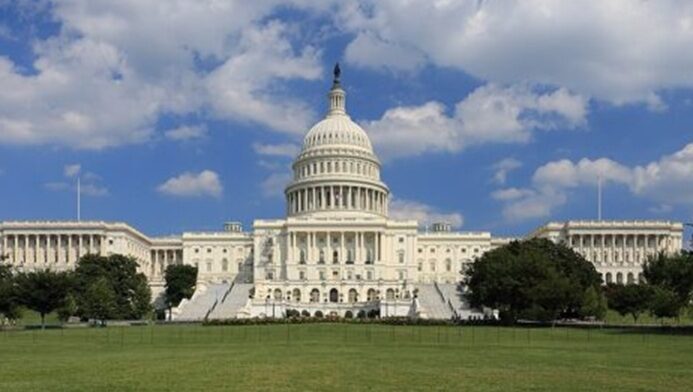Solar is easily the most popular energy source in the United States. In poll after poll, Americans say that they want the nation to use more solar power, and most support mandates such as requiring new homes to host PV arrays.
But in Congress, things are more complicated.
This morning, at 10 AM East Coast time, the Solar Energy Industries Association (SEIA) will send a letter to every member of the U.S. Congress, calling for an extension of the 30% Investment Tax Credit (ITC), the main federal support for solar.
The letter is signed by nearly 1,000 companies, almost all of whom are in the solar industry and which includes the biggest names in development, residential installation & finance. The only large company whose absence pv magazine has observed is First Solar.
If successful, this would be the fourth time that the ITC has been extended. The policy was initially implemented in 2005, but was extended in 2006 and 2008, and again in 2015. The most recent extension set a schedule for the credit to phase out, dropping from 30% for projects which begin construction at the end of 2019 to 26% in 2020, 22% in 2021 and 10% in 2022, and disappearing for individuals altogether starting that year.

Moving Congress
Even with the weight of the vast majority of the solar industry behind it, it is unclear whether or not SEIA can pull off another ITC extension. The organization has, for at least a decade, touted its “friends on both sides of the aisle”, and while SEIA has put a lot of money into courting Republicans, it is clear that Congressional Democrats have been much more supportive of incentives for renewable energy.
However, despite energy storage generally being seen as having more of a bipartisan appeal, American Council on Renewable Energy (ACORE) and other organizations were not able to get an ITC for energy storage in the first version of the tax extenders package which passed out of the House Ways and Means Committee in June.
Many Democratic politicians have supported renewable energy with the explicit rationale of addressing climate change. Overall, the Democratic Party has shown much more concern for this issue than Republicans, many of whom continue to deny the climate around man-made climate change.
And as SEIA has put a lot of emphasis on courting Republicans and moving the solar market forward in “red” states, it has relied on messaging that stresses the other benefits of solar, and instructed its member companies to do so as well.
But in an uncharacteristic move, SEIA President and CEO Abigail Hopper directly spoke to climate change in a press statement accompanying the letter. “If you want to show a commitment to addressing climate change, you extend the solar ITC,” stated Hopper. “As we debate long-term solutions, now is not the time to abandon the single most successful policy on the books to deploy clean energy in the near-term.”
Horse trading
It is important to understand that the extension of the ITC at the end of 2015 appeared to come via a compromise where Democrats agreed to lift the oil export ban in exchange for Republicans allowing an ITC extension. This process of trading policies is referred to as “horse trading”, and any bid for an ITC extension could end up being a pawn in other policy conflicts.
This call by SEIA also comes as Congress has been stuck in something of a stalemate over the budget process, and it is unclear if the tax extenders will be caught up in this. Given the showdowns that have characterized previous budget processes and many other decisions in the Senate, pretty much anything is possible.
This content is protected by copyright and may not be reused. If you want to cooperate with us and would like to reuse some of our content, please contact: editors@pv-magazine.com.









How about just a more realistic step down. 3-4% per year or something so prices can adjust accordingly.
There have already been proposals to make the ITC available at 25% from now on, to realigning the 30% ITC to roll off further down the road. I believe the ITC has helped drive the home development industry’s budding practice of solar PV with energy storage as part of every home in the development. These large housing developments using solar PV and energy storage represent an aggregate behind the meter energy storage systems in the MW range. This is something the electric utilities can enjoy “avoided costs”. The housing tract energy storage system presents the utility with the perfect arbitrage energy storage at night, to help with the “duck curve” during the day. The energy storage system presents the housing tract with energy storage for the late after noon to early evening TOU electricity price spiking.